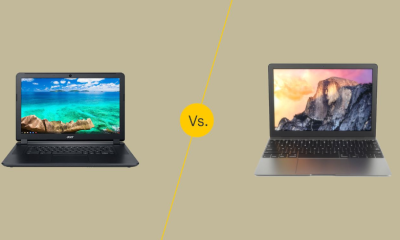EDUCATION
Unlocking the Power of Google Scholar Citations 3 Great
Google Scholar Citations is a powerful tool for academics and researchers,

Google Scholar Citations is a powerful tool for academics and researchers, offering a platform to showcase their work and track its impact. In this article, we’ll delve into the intricacies of Google Scholar Citations, from understanding its importance to maximizing its potential for enhancing academic visibility and reputation.
Google Scholar Citations is a freely accessible web search engine that indexes the full text or metadata of scholarly literature across an array of publishing formats and disciplines. It provides a simple way for authors to keep track of citations to their articles and compute citation metrics.
What are Google Scholar Citations?
Google Scholar Citations allows authors to create a public profile that aggregates their research output and citation metrics. It compiles information about the author’s publications, citations, and h-index, providing insights into their academic impact.
Importance of Google Scholar Citations
Google Scholar Citations play a crucial role in academia by facilitating the dissemination and discovery of scholarly works. They enhance the visibility of research outputs, making them more accessible to other researchers and the broader academic community.
Creating a Google Scholar Profile
Setting up a Google Scholar profile is the first step towards harnessing the power of Google Scholar Citations.
Setting up Your Profile
To create a Google Scholar profile, authors need a Google account. Once logged in, they can fill out their profile information, including their affiliation, research interests, and publications.
Adding Publications and Citations
Authors can manually add their publications to their Google Scholar profile or allow Google Scholar to automatically update their list of publications based on its indexing algorithms. They can also track citations to their articles and monitor their citation metrics.
Managing Your Google Scholar Profile
Maintaining an up-to-date Google Scholar profile is essential for maximizing its impact and accuracy.
Keeping Your Profile Updated
Authors should regularly update their Google Scholar profiles with new publications, citations, and changes in affiliation or research interests to ensure the accuracy and completeness of their academic record.
Responding to Citations and Alerts
Google Scholar provides authors with citation alerts, notifying them whenever their work is cited by another author. Authors can acknowledge citations, respond to queries, and correct any inaccuracies in their citation record.
Benefits of Google Scholar Citations
Google Scholar Citations offer numerous benefits to authors and researchers, contributing to their academic success and recognition.
Increased Visibility and Impact
By showcasing their research output on Google Scholar, authors can increase the visibility and impact of their work, reaching a wider audience of scholars and practitioners.
Tracking Citation Metrics
Google Scholar Citations provide authors with citation metrics such as the h-index, i10-index, and total citations, allowing them to gauge the influence and significance of their research in their field.
Tips for Maximizing Your Google Scholar Citations
Optimizing your Google Scholar profile and leveraging its features can enhance your visibility and impact as an academic.
Optimizing Your Profile
Authors should ensure that their Google Scholar profiles are complete, accurate, and up-to-date, including all relevant publications and citations. They can also customize their profile settings to control the visibility of their information.
Collaborating with Researchers
Collaborating with other researchers and co-authoring publications can increase the citation impact of your work and enhance your academic network.
Using Google Scholar Citations for Networking
Google Scholar Citations can serve as a valuable networking tool, connecting authors with other researchers and research communities.
Finding and Connecting with Researchers
Authors can use Google Scholar to search for other researchers with similar interests or expertise and connect with them through their profiles or publications.
Joining Research Communities
Google Scholar allows authors to join research communities and follow the latest developments in their field, facilitating collaboration and knowledge exchange.
Enhancing Your Academic Reputation with Google Scholar Citations
Google Scholar Citations can significantly contribute to building and enhancing your academic reputation.
Building a Strong Online Presence
Maintaining a comprehensive and well-curated Google Scholar profile can establish your presence in the academic community and showcase your expertise and contributions.
Establishing Credibility in Your Field
High citation metrics and a robust publication record on Google Scholar can enhance your credibility and reputation as a researcher in your field.
Overcoming Challenges and Common Issues
While Google Scholar Citations offer numerous benefits, authors may encounter challenges and issues when using the platform.
Dealing with Duplicate Profiles
Authors may find multiple profiles associated with their name on Google Scholar, leading to confusion and inaccuracies in their citation record. It’s essential to claim and merge these profiles to maintain a coherent and accurate academic identity.
Ensuring Accuracy of Citations
Authors should regularly review their citation records on Google Scholar to identify any inaccuracies or missing citations and take steps to correct them.
Comparing Google Scholar Citations with Other Citation Indexes
Google Scholar Citations differ from traditional citation indexes in several aspects.
Differences and Similarities
While Google Scholar offers broader coverage and accessibility than other citation indexes, it may include non-peer-reviewed sources and duplicates, leading to discrepancies in citation counts.
Pros and Cons
Google Scholar Citations provide a user-friendly interface and comprehensive coverage of scholarly literature but may lack the rigor and quality control of traditional citation indexes.
Case Studies: Success Stories with Google Scholar Citations
Numerous researchers have benefitted from using Google Scholar Citations to showcase their work and track its impact.
Future Trends in Academic Citations
The landscape of academic citations is constantly evolving, driven by technological advancements and changes in scholarly communication.
Technological Advancements
Technological innovations such as artificial intelligence and machine learning are reshaping how citations are indexed, analyzed, and utilized in academia.
Shifting Paradigms in Scholarly Communication

The rise of open access publishing and alternative metrics is challenging traditional citation practices and fostering new ways of evaluating scholarly impact and reputation.
Conclusion
Google Scholar Citations offer researchers a powerful tool for showcasing their work, tracking its impact, and enhancing their academic reputation. By optimizing their profiles and leveraging the platform’s features, authors can maximize the visibility and influence of their research in the academic community.
FAQs
How do I create a Google Scholar profile?
To create a Google Scholar profile, simply sign in with your Google account and follow the prompts to set up your profile, including adding your affiliation, research interests, and publications.
Can I edit or delete citations on Google Scholar?
While you can’t directly edit or delete citations on Google Scholar, you can request corrections for inaccuracies or duplicates through the platform’s feedback mechanism.
Is Google Scholar Citations free to use?
Yes, Google Scholar Citations is free to use for authors and researchers, providing a valuable resource for tracking citations and measuring academic impact.
How often should I update my Google Scholar profile?
It’s recommended to update your Google Scholar profile regularly, especially whenever you publish new research or experience changes in affiliation or research interests, to ensure its accuracy and completeness.
Are Google Scholar Citations considered reliable for academic purposes?
While Google Scholar Citations offer comprehensive coverage of scholarly literature, including peer-reviewed and non-peer-reviewed sources, they may not always meet the same standards of rigor and quality control as traditional citation indexes. However, they remain a valuable tool for tracking citations and measuring academic impact.
Table of Contents
-

 Business5 months ago
Business5 months agoSepatuindonesia.com | Best Online Store in Indonesia
-

 Technology3 weeks ago
Technology3 weeks agoTop High Paying Affiliate Programs
-

 Tech5 months ago
Tech5 months agoAutomating Your Window Treatments: The Advantages of Auto Blinds
-

 Tech5 months ago
Tech5 months agoUnleash Your Potential: How Mecha Headsets Improve Productivity and Focus
-

 Instagram2 years ago
Instagram2 years agoFree Instagram Follower Without Login
-

 Reviews11 months ago
Reviews11 months agoAndroid Laptop vs. Chromebook: Which one is better?
-

 Instagram2 years ago
Instagram2 years agoIGTOK – Get Instagram Followers, Likes & Comments
-

 Business8 months ago
Business8 months agoFollow These 5 Tips To Avail Personal Loans At Lower Interest Rates




















